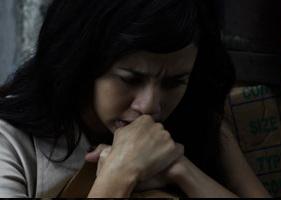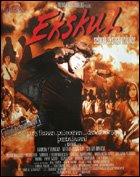In writing a screenplay, a screenwriter is constantly told by his or her own consciousness to define characters on the written screenplay through their actions. How one behaves or reacts to situations surrounding them truly reflect their truest characters in real life.
Point taken.
Yet, knowing that bad screenplays come out more often than the good ones, what we often see on both big and small screens are passive (main) characters who do not create anything to happen in their lives. In screenplay-writing terms, this kind of unfortunate mishap is better known as “off-the-page”. The passive characters are the kinds that seem to stand or look still, and having their presence reduced to minimum throughout the storylines, usually we hardly relate to them, making it hard to create sensory connections, be it empathy or hatred.
Such a numb experience, leaving a devastating effect in a long run.
Why these passive characters exist? A simple and quick answer to this question would be to provide a counterbalance for the active ones, in order to achieve that stated ‘status’. By any means, the kind of mindless response is perfectly fine. However, if we are willing to dig deeper, we might be able to retrieve many more possibilites why they have to exist. Or rather, we might want to derive any possible causes why they exist on the first place.
Let’s see.

Passive characters wait for some things to happen. As stated above, they’d rather wait than create. They believe that they will cause things to happen around them through their minimum act of doings. Of course, the means to achieve whatever intentions they have might be some intangible tools we are hardly aware of. Mantra, prayers, these kind of things have greater chances to be perfectly abused of from their holy initial usage.’
If waiting is not vivid enough in depicting the characters, perhaps it is best to say as well that the passive creatures carry too much pride within themselves. So much so with this pride emblem applied inside their heads and minds, this elite club will remain elite eternally, because they will go to the distance in preserving the pride. Stooping low to get to the dirty core of life is strictly a no-no option, because pride, or often disguised with another word called ‘dignity’, is something too fragile to gamble.
In other words, that particular famous Jane Austen’s novel should be re-titled as Pride and Patience, and what we get to see is a novel resembling the line shown in a monitor next to a dead patient. Straight. Linear. Freakingly straight line with no dynamic movement.

Thus, no matter how we dress up these characters, they are bound not to create any spark within us to notice. They choose to hide themselves under the thick particle of dust, while looking at better things ahead from a faraway place, and binoculars are not a must option in this session.
And they will keep thinking:
“Maybe it’s better to stay this way. Maybe this is the good thing to come. Maybe, I have become way too comfortable in this.”
Maybe. But at the moment, my question to myself on being the kind of people I’ve uttered for the previous 500 words so far is:
“Have you been right all along, that some people are best left to be appreciators rather tan doers, because they’ll never be good in doing what passionate them most?”
I can’t face the answer.











